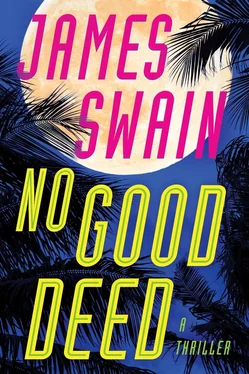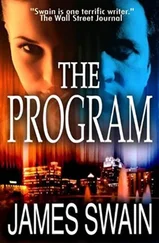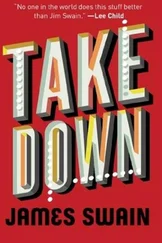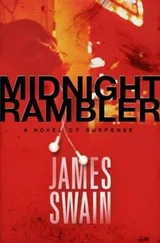The museum’s mission was to preserve the legacy of a group of soldiers whose missions would forever remain secret. It did this by displaying the amazing seacraft and weaponry that had been developed for the SEALs. This included special boats designed to evade radar and submersibles used to insert soldiers behind enemy lines.
The museum also served another purpose. Its directors, all navy veterans, had established a network of ex-SEALs who were available for hire. This resource was called ETHOS, and while its services didn’t come cheap, its members were in constant demand. Saving pennies was not the objective when human lives were at stake.
An automated service picked up. He punched in an extension, and was routed to the voice mail of Lieutenant Mark Starkweather, a cover for the ETHOS network. He identified himself, and asked for a call back. Sixty seconds later, he got one.
“This is Jon Lancaster, and I need some help,” he said.
“First things first. What are the passwords?” the operator asked.
“Forged by adversity.”
“Who do you help?”
“Those that cannot help themselves.”
“That works. What are you looking for?”
He explained the mission and the number of men needed to accomplish it. The operator did a quick check of her database, and said that there was a four-man scuba team in the Saint Petersburg area that was available for hire. The ingenuity of the Outlaws operation was that their victims were being held captive in open waters, in plain sight. A group of SEALs wearing scuba equipment could approach in a boat, dive into the water, and stage their mission. The Outlaws would never see them coming.
The operator quoted him a price, which he agreed to. It wasn’t cheap. He would ask Daniels to have the FBI reimburse him, and if they turned him down, he’d ask Team Adam. If they said no, he’d foot the bill himself.
“Where would you like to meet to discuss your mission?” the operator asked.
He gave the operator the name of the marina in Ozona.
“What time would you like to meet?” she asked.
“As soon as possible,” he said.
The restaurant next to the marina was still serving food, and he ate raw oysters at the bar while watching a muted TV. Most of the diners had cleared out, and the bartender was making noises like he wanted to go home.
At 10:25 p.m. he got a text from the scuba team. They had reached the marina, and were about to pull in. He tossed a handful of bills onto the bar to cover his food.
“Keep the change,” he said.
He hustled over to the marina. The main office was locked up, but there was plenty of activity on the boats, with people holding loud parties and carrying on, and his presence didn’t cause any concern. He walked out onto the end of a long dock, and leaned against a piling to wait. The wind had died, and the water reflected the flickering lights of the restaurant and of the full moon. A puttering sound snapped his head. Using his cell phone like a beacon, he watched a vessel motor toward him.
He helped them tie up. Their boat was called a bowrider. The bow had a unique construction, with a swim platform for wakeboarders that was also ideal for scuba divers to get in and out of the water.
The scuba team consisted of four men, ranging in age from late thirties to early fifties. Each wore shorts and a long-sleeve athletic shirt. They shared an easy camaraderie, and looked no different from any other group who’d spent the day fishing.
One of the group was taller than the others, and wore his hair slicked back. He joined Lancaster on the dock and offered his hand.
“I’m Trent,” he said. “Sorry it took us so long to get here. We had to fill up several of the tanks with air, and it took a while.”
“No need to apologize. I appreciate you taking the job on short notice.”
“Anything to help a brother SEAL.”
Lancaster had not put his cell phone away. He pulled up the photograph of the charter fishing vessel that Peyton Lynch had sent him, and passed the cell phone to Trent. Trent studied the photograph before passing the cell phone to his team.
“This is your target,” Lancaster said. “It was being used as a charter fishing vessel before the Outlaws motorcycle gang bought it. I don’t know how you approached the marina, but you may have passed it on your way in.”
“We came in from the north. The south is too shallow,” Trent said.
“I saw this boat,” one of the team said. “It was huge. There was a guy on the stern with a gun strapped to his side. I waved, but he didn’t wave back.”
“They running drugs?” Trent asked.
“Not drugs,” he said.
Trent stared at him, as did the others. They wanted to know not just because they were curious but also because it was important for them to understand the nature of the mission. In the heart of every SEAL was an unmatched personal ethic. SEALs weren’t just great soldiers, they were also great people, and they lived their lives without compromise or regret. If he had told them that this mission was a personal vendetta, they would have bolted. So he left that part out, and focused on what was truly important.
“They’re slave traders,” he said. “They kidnap women, and ferry them onto the boat, where the women are held as prisoners. When the boat’s full, they set sail.”
“Who in God’s name buys slaves?” Trent said.
“There are brokers who sell slaves to wealthy people in Central and South America. One of those brokers is on the boat right now, inspecting the merchandise.”
“That’s sick.”
“I felt the same way when it was explained to me. This operation has been going on for several years, so it’s safe to say there have been many victims.”
Trent looked away, and Lancaster sensed that he was trying to control his anger. Every one of those victims had a family whose lives had been ruined by the Outlaws. They needed to be stopped, and in the process, shown no remorse.
“How do you want us to handle it?” Trent asked.
“The broker will come back to shore so he can attend a meeting to pay some ex-convicts who assisted in the abductions,” he said. “With him will be a biker named Dexter Hudson. Those guys are not your concern.”
“Who’s dealing with them?”
“The FBI is. They’ve got a team that’s staked out the meeting place. When the broker and Dexter meet the ex-cons, the FBI will swoop in, and make the bust. Once that happens, you will incapacitate the men on the boat who are guarding the victims. Then you’ll call me, and I’ll send the FBI out to bring the victims ashore.”
“Should we greet the FBI when they come out?”
“No. You’ll need to disappear. Unless you want your names put in a report.”
“I think we’d like to avoid that. Okay, guys, any questions?”
The man who’d mentioned seeing the armed guard spoke up. “What if the people on the boat engage us? How should we handle that?”
“The only important people on that boat are the victims,” Lancaster said. “If one of the bikers acts up, put a bullet in his head.”
“That’s murder.”
“Take the body with you, and dump it in the ocean. Anything else?”
The men shook their heads. Trent jumped back in the boat, and they prepared to leave. Lancaster felt like he’d left something out. On every mission he’d ever gone on, the commanding officer had given the team a short bio of the person they were about to rescue. It had given the mission a gravitas that otherwise wouldn’t have been there.
“There’s one more thing you should know,” he said. “These victims all share something in common. Each one of them helped put a bad person in prison. They did a good deed, and got repaid with a bad deed.”
Читать дальше












